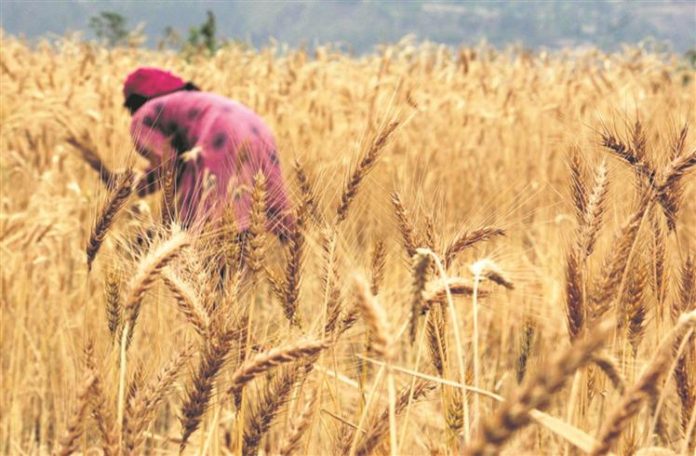New Delhi: The Union Cabinet on Tuesday approved a hike in Minimum Support Price (MSP) of rabi crops, including wheat, masoor and gram, for the 2023-24 marketing season.
The support price of wheat, the main rabi crop, was increased by Rs 110 per quintal (from Rs 2015 in 2022-23 to Rs 2125 in 2023-24)—a hike of around 5.46 per cent. Highest increases, however, were in the case of rapeseed, mustard and lentils — Rs 400 and Rs 500, respectively — in mind the government’s aim to achieve self-reliance and encourage farmers to shift from grains to high value oilseeds and pulses which are imported.
The MSP for rapeseed and mustard was raised by almost 8 per cent to Rs 5,450 a quintal and of lentils (masur) by over 9 per cent to Rs 6,000 a quintal. The support price of barley was increased by Rs 100 per quintal (Rs 1,735) gram by Rs 105 per quintal (Rs 5,335) and sunflower by Rs 209 per quintal (Rs 5,650)
The Agriculture Ministry had recommended an increase up to 9 percent following recommendations from the CACP, sources said.
The hike, which critics said was “less than the current inflation rate”, came amid lower stocks of wheat and its rising prices in the retail market.
Farmers dismissed the increase as “paltry” in mind the input costs.
Officials said a higher support price would have triggered more inflation and a rise in market prices. “The rate of return is 104 per cent over cost for rapeseed and mustard, 100 per cent for wheat, 85 per cent for lentils, 66 per cent for gram, 60 per cent for barley and 50 per cent for sunflower,” they added.
Agriculture expert Sudhir Panwar called the MSP “of national importance because of the higher spot market price of all these crops. Private players procured every kilo of mustard from Haryana mandis”.
“The hike in wheat (5.4%), gram (2%), safflower (3.8%) is lower than 7% hike in dearness allowance while increase of 9% in lentil and 7.9% in mustard is to provide positive signal for sowing of pulse and oilseed for import substitution,” he said.
With wheat prices ruling higher than the increased MSP in the open market, it remains to be seen if farmers will be willing to sell their produce to official procurement agencies.
Due to higher prices, farmers have been selling their produce to private traders, resulting in a drop in official procurement. This year the government needs to ensure that wheat procurement is on target as stocks are down, especially in mind the free rations scheme.
Wheat/atta inflation for September was at 17.4 per cent and demand for wheat by-products like atta, maida and sooji normally goes up during the festival season. Trade analysts say wheat prices in wholesale markets in Delhi increased by almost Rs 100 per quintal since September.
Yesterday Food Secretary Sudhanshu Pandey called the increase in wheat prices “normal” as rates had been “artificially depressed” last year. Pandey also said ample stocks were available to make an intervention in the market as and when required.
Asserting that this price increase of wheat was “not astronomical”, he said it was in line with increase in support price, fuel and transportation and other expenses. “Last year the rates dropped as FCI pumped in seven million tonnes of wheat in the open market. It is not advisable to compare this year’s increase with last year, it should be compared with prices in 2020,” he said.
Meanwhile, analysts expect wheat farmers to plant at least 10 per cent more area than previous years due to higher prices in the open market due to demand, drop in production because of rise in temperatures in March and April 2022 and the Russia-Ukraine war. As on October 1, wheat stocks in the central pool were estimated at 227. 46 lakh tonnes, slightly over the buffer norms of 205.2 lakh tonnes.
Oilseeds production increased from 27.51 million tonnes in 2014-15 to 37.70 MT in 2021-22 (4th advance estimates), as per official figures.
Pulses production has shown a similar increasing trend.


